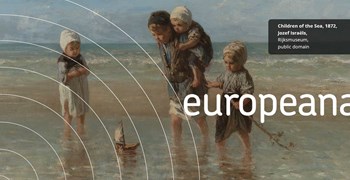Exploring Europeana in Czech, Irish, Slovak and Slovenian
Europeana Collections can now be navigated in 4 more languages: Czech, Irish, Slovak and Slovenian.
These new languages now means that Europeana Collections can be navigated in 27 languages – each of the 24 official languages of the EU as well as Catalan, Norwegian and Russian.
To mark this, we’ve taken a look at some snapshots of collections to be found in each of the new languages from Czech Republic, Ireland, Slovakia and Slovenia.
Czech
Among the objects found on Europeana Collections in Czech are Art Nouveau posters by Alfonse Mucha such as the one above, portrait photography from Prague and a large collection of texts and documents from the National Library of the Czech Republic
Irish
While only a small number of items in the Irish language are to be found on Europeana Collections, there are large collections of traditional Irish music from the Irish Traditional Music Archive and Comhaltas Traditional Music Archive.
Going back further in time, this collection of Ogham stones from the Dublin Institute of Advanced Studies show an Early Medieval alphabet used to write the early Irish language.
Slovak
Collections in Slovak include more than 2,000 artworks in a wide range of styles from the acclaimed collections of the Slovak National Gallery.
Also in Slovak are archive photography relating to World War One from the Slovak National Library, as well as botanical specimens from the Institute of Botany of Slovak Academy of Sciences.
Slovenian

Ta zemlja nosi naš pečat, naš znoj in našo kri, National and University Library of Slovenia, Public Domain
Collections in Slovenian include maps, postcards, photographs and documents relating to travel and tourism in Slovenia. Slovene Ethnographic Museum have shared sketches and drawings of a wide variety of museum objects relating to everyday life in Slovenia, while the Slovenian Museum of Natural History have provided photographs of live insects and other animals.















